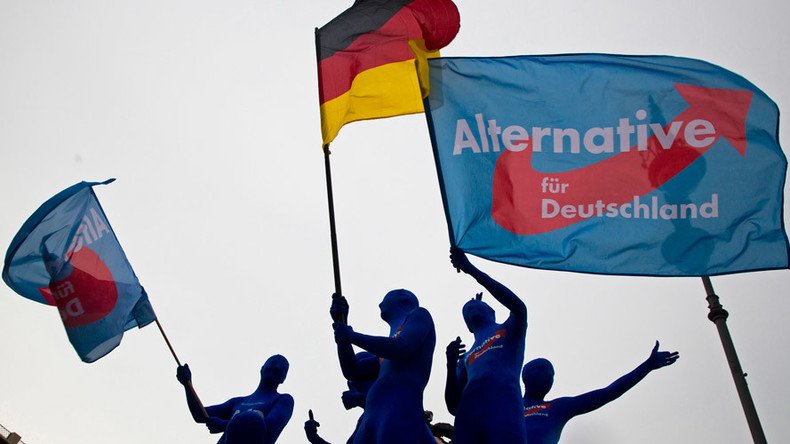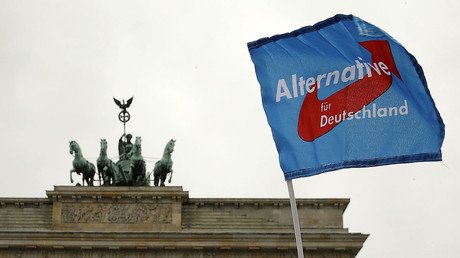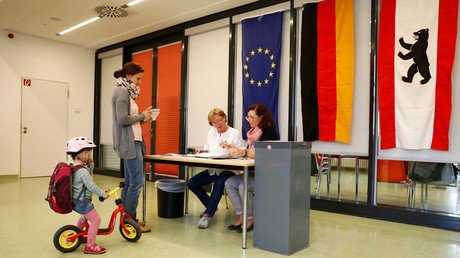German anti-immigrant AfD gains record high support – poll

The right-wing, Eurosceptic Alternative for Germany Party (AfD)’s nationwide support has hit a record high. Meanwhile, traditional German establishment parties gradually lose public backing, a new poll shows.
Nationwide public support for AfD has risen to 16 percent, beating the right-wing party’s previous May record of 15 percent, a DeutschlandTrend survey, conducted by market research company TNS Infratest for Germany’s public broadcaster ARD.
In comparison to the previous DeutschlandTrend survey conducted on September 1, AfD got two more percentage points, ARD reports. Now, it takes the third place among Germany’s major parties, and falls behind the two major establishment parties, Chancellor Angela Merkel’s Christian Democratic Union (CDU) and their coalition partners, Social Democrats (SPD).
At the same time, the CDU and the SPD are continuing to gradually lose public support.
CDU alongside with their Bavarian allies, the Christian Social Union, together obtained 32 percentage points in the poll while Social Democrats received support from 22 percent of the Germans, the survey says, adding that both parties lost 1 percent in comparison to the September 1 poll.
The German Left Party also lost one percent point and now holds eight percent support. Meanwhile, the Green Party and the Free Democrats (FDP) both made a small gain of one percentage point and received 12 and six percent of public support respectively.
Peter Altmaier, the head of the Chancellor’s Office and a CDU member, called the poll’s results “unpromising” for the mainstream parties and told ARD that they are linked to the fact that “we are facing difficult problems in our country.”
At the same time, he expressed his confidence that the results would be “better”, “when the people could see and feel that we got control over these problems.”
The survey conducted between September 19 and September 21 comes just days after the AfD made another election breakthrough in Berlin. The right-wing party gained 14.1 percent of the vote taking fifth place in Berlin’s local elections. Following the Berlin voting, the AfD deputy chief vowed that his party would become the third largest force in the 2017 federal parliamentary elections.
Earlier, it also grabbed over 20 percent of the vote coming second in local elections in the German states of Mecklenburg- Western Pomerania and Saxony-Anhalt.
AfD made immigration and security its top issues, repeatedly criticizing the ruling collation and Chancellor Merkel personally, for her open-door refugee policy. It also accused her of being unable to cope with the refugee crisis.
At the same time, the AfD still incites controversy, provoking accusations that it supports Nazi sentiments. It was recently revealed that one of the newly elected AfD Berlin legislators, Kay Nerstheimer, was a member of the right-wing extremist German Defense League and wrote posts on Facebook that glorified Nazism.
The AfD dropped Nerstheimer from the Berlin parliamentary faction and now plans to expel him.
Established in 2013 following the euro crisis as a Eurosceptic party, the AfD then shifted its focus to immigration and refugees. The party is already represented in ten out of 16 German regional parliaments.














